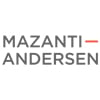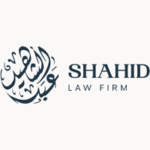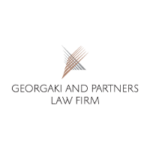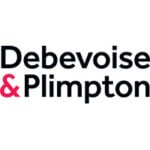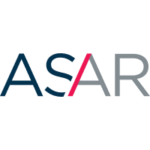-
What are the key rules/laws relevant to M&A and who are the key regulatory authorities?
The main rules/laws relevant to M&A in the Netherlands are:
- the Dutch Civil Code, which governs the general aspects of corporate law, contracts, and liability;
- the Dutch Corporate Governance Code, which sets out best practice provisions with respect to corporate governance of public companies and applies on a ‘comply or explain’ basis;
- the Dutch Financial Supervision Act, which regulates the financial markets and institutions, and imposes disclosure, notification, and approval requirements for public offers and takeovers involving listed companies and financial undertakings, and the Public Takeover Bids (Financial Supervision Act) Decree, which includes specific regulations and requirements for public offers in the Netherlands;
- the Dutch Competition Act, which provides for Dutch competition rules and prohibits anti-competitive agreements and abuse of dominance in the Netherlands, and requires notification to and clearance from the Dutch Authority for Consumers and Markets (ACM) for concentrations that meet the turnover thresholds, and the EU Merger Regulation which provide that the European Commission (EC) serves as a one-stop-shop for the review and clearance of transactions that meet the EU merger control thresholds. In such cases, the EC has exclusive jurisdiction and no separate notification or clearance from the ACM is required;
- the Dutch Works Councils Act, which grants the right of consultation and advice to the works council of companies on certain important decisions affecting the company, such as mergers and acquisitions, restructurings, or taking up significant credit, and requires the management of the company to inform and consult the works council in a timely and adequate manner;
- the Dutch Investments, Mergers and Acquisitions Security Screening Act (Vifo Act), which comprises the general investment screening mechanism in the Netherlands, and requires certain transactions related to (i) vital service providers, (ii) companies active in sensitive technology, and (iii) operators of business campuses, to be notified to the Dutch Investment Screening Desk. Parties may only implement a notified transaction after they have received clearance from the Minister of Economic Affairs and Climate. The Dutch government recently announced its plan to extend the scope of the Vifo Act, by bringing six additional technologies (including certain AI) under the regime and designating more technologies as “highly sensitive”, which amendment is expected to take effect in the second half of 2025;
- the Telecommunications Sector (Undesirable Control) Act, the Gas Act and the Electricity Act (of which the last two will be replaced by the Energy Act), which provide sector-specific legislation for the telecommunication, gas, and electricity markets, and set out notification and clearance requirements for certain transactions in those sectors. An additional screening regime is expected to be implemented for the defence sector in 2026;
- the EU Foreign Subsidies Regulation (FSR), which aims to ensure a level playing field between European companies and those backed by foreign subsidies operating within the EU’s internal market. It introduced a notification requirement for certain transactions that meet the relevant thresholds, such as mergers and acquisitions, allowing the EC to assess and, if necessary, remedy any undue advantages that foreign-subsidized companies may have over their EU competitors; and
- the Corporate Sustainability Reporting Directive (CSRD – which applies to various listed and non-listed companies, banks, and insurance companies and is being implemented in waves) and the Corporate Sustainability Due Diligence Directive (CSDDD – which requires certain large EU and non-EU companies to conduct thorough due diligence on human rights and environmental impacts across their entire value chain). The EC has recently proposed, as part of the omnibus package, to bring several changes to among others the CSRD and CSDD such as a reduction of the scope of reporting companies under the CSRD, postponing the application of the reporting requirements in the CSRD for companies that are due to report in 2026 and 2027 (i.e. wave 2 and 3 companies), and postponing the first phase of the application of the due diligence requirements under the CSDDD.
The key regulatory authorities relevant to M&A in the Netherlands are:
- the Dutch Authority for the Financial Markets (AFM), which supervises the conduct and integrity of the financial markets and institutions, and is the main regulatory body regarding public offer processes;
- the Dutch Central Bank (DNB), which supervises the prudential soundness and stability of the financial system and institutions, and approves or rejects the acquisition or disposal of qualifying holdings in financial undertakings, such as banks, insurers, pension funds, and investment firms; and
- the ACM and EC, which enforce the competition and consumer protection rules, and review and clear or prohibit concentrations that meet the applicable thresholds.
Additional sector specific rules and laws may apply, depending on the parties involved in the transaction.
-
What is the current state of the market?
The state of the M&A market remains characterised by challenging conditions, such as diverging buyer/seller expectations with respect to price and geopolitical uncertainty (including the potential effects of the policies of the new administration in the United States). At the same time, inflation and interest rates are declining/stabilizing and private equity’s available capital is expected to stimulate the Dutch M&A market, resulting in an optimistic outlook for 2025.
Two other current trends are (i) the increased scrutiny of foreign investments in response to geopolitical tensions, with the Vifo Act now in force and further expansion of its scope expected in the near future (see Question 1); and (ii) ESG legislation taking a more prominent role in M&A, partly due to a significant increase of the required non-financial reporting by companies under the CSRD, while at the same time the EC has adopted new proposals that will cut red tape and simplify reporting requirements.
-
Which market sectors have been particularly active recently?
The technology and (sustainable) energy sectors are expected to remain a driver of M&A activity, given the continued trend toward sustainable energy and digital transformation (including the accelerating capabilities and integration of AI within various industries).
-
What do you believe will be the three most significant factors influencing M&A activity over the next 2 years?
As interest rates are stabilising and there being an optimistic outlook for the M&A market in 2025, we expect the M&A market to be influenced over the next two years by: (i) private equity stimulating the Dutch M&A market, (ii) a preference for tailored bilateral transaction processes over seller driven auction processes and (iii) a continued focus on the national and international regulatory regimes (specifically in light of ESG and foreign direct investment screening).
-
What are the key means of effecting the acquisition of a publicly traded company?
Publicly traded companies in the Netherlands are generally acquired by one of the following means:
- a public offer, which can be a voluntary public offer or a mandatory public offer (both of which are subject to statutory procedural rules). A voluntary public offer is usually subject to a variety of conditions (such as competition clearance and a minimum acceptance threshold – see Question 11). A mandatory public offer must be made if a party (acting alone or in concert) acquires 30% or more of the voting rights in the listed company, unless an exception to the mandatory offer requirement applies. The offer memorandum on the basis of which the public offer is made must be submitted to and approved by the AFM before the offer is made.
- a block trade transaction between the acquirer and one or more shareholders of the target company to sell and purchase shares or other securities, which may be followed by a mandatory public offer for the remaining listed shares (see Question 26).
- a legal merger or asset sale, which are less common as a main transaction structure and require the cooperation of the target’s board. A legal merger is generally feasible only if the buyer is also a listed company and offers its securities as consideration. Under Dutch law, cross-border mergers are allowed only with companies incorporated in a jurisdiction within the European Economic Area (EEA) (which restriction can be circumvented in practice). Asset sales are mainly common in the Netherlands as part of a ‘pre-wired back-end measure’, pursuant to which the buyer acquires the minority stake following a voluntary public offer (see Question 28), but are occasionally also used as the main transaction structure (see Jumbo/Super de Boer (2009) and Major Shareholders/Roto Smeets (2015)).
-
What information relating to a target company is publicly available and to what extent is a target company obliged to disclose diligence related information to a potential acquirer?
A public company in the Netherlands must publish annual and interim financial reports, as well as other periodic disclosures. These reports and disclosures, which must be made generally available, include information on the company’s financial position, performance, risks, governance, share capital, major shareholders, transactions with related parties, and material events or developments. Details about persons holding an interest of 3% or more in a public company are also generally available (see Question 15). Governance documentation and information as filed with the Trade Register of the Dutch Chamber of Commerce (e.g., the annual accounts, the articles of association, and details about the members of the management and supervisory board) are available for both public and private companies in the Netherlands.
Furthermore, pursuant to the EU Market Abuse Regulation (MAR), a public company in the Netherlands must also disclose any inside information as soon as possible, unless it may delay such disclosure (see Question 16).
There is no general legal obligation for a target company in the Netherlands to disclose diligence-related information to a potential acquirer. The management board of the target company, under the supervision of the supervisory board, has the authority to determine whether providing due diligence information is in the best interest of the company and its affiliated enterprise.
-
To what level of detail is due diligence customarily undertaken?
The level of detail of due diligence customarily undertaken in the Netherlands depends on various factors, such as the size and complexity of the transaction, the industry and regulatory environment of the target company, the negotiation leverage of the parties, and whether the target is a private or public company. Due diligence in the Netherlands typically covers areas such as legal, financial, tax, commercial, environmental and regulatory matters, and is conducted in phases, starting with a preliminary or high-level screening based on publicly available and, in some events, limited non-public information. This is followed by a comprehensive analysis based on confidential and detailed information provided by the seller/company, and ending with a confirmatory review based on updated and additional (sensitive) information.
In the event of a hostile public offer, the offeror will generally be limited to reviewing the publicly available information regarding the target company.
Under Dutch law, sellers are required to disclose essential information about the target company that could affect the acquirer’s decision-making process and acquirers are expected to perform adequate due diligence, which includes investigating and asking for clarifications on unclear matters.
-
What are the key decision-making bodies within a target company and what approval rights do shareholders have?
The management board and the supervisory board are the key decision-making organs within a target company. Their duties are set out below under Question 9.
In the context of a public offer, following the publication of the offer memorandum, the target company is required to convene an extraordinary general meeting of shareholders to inform the shareholders of the public offer. Such general meeting is often also used to obtain a (conditional) shareholders’ resolution for (i) an amendment of the articles of association of the target company, and (ii) the implementation of pre-wired back-end measures (as described under Question 28), to be implemented subject to the public offer being declared unconditional. The shareholders of the target company are free to decide whether to tender their shares in the offer or not.
In the context of a private company transaction, the shareholders of the target company will generally negotiate directly with the potential acquirer and enter into a share purchase agreement with the acquirer of the target company. To the extent the management board, under the supervision of the supervisory board, intends to enter into a transaction that would result in an important change in the identity or character of the company’s business, the approval of the general meeting is generally required.
-
What are the duties of the directors and controlling shareholders of a target company?
Under Dutch law, there is an overarching statutory obligation for the management board and the supervisory board to act in the interest of the company and its affiliated enterprise. This interest is mainly served by promoting the long-term value creation of the target company and its affiliated enterprise. Additionally, the management board and the supervisory board have a duty of care towards the interests of the relevant stakeholders, including shareholders, employees, customers, and creditors. They have an obligation to involve and weigh the interests of all stakeholders in their decision-making process.
In general, shareholders are not required to be guided by the interests of the company and its affiliated enterprise and may, in principle, give priority to their own interests. However, controlling shareholders (e.g., shareholders holding 30% or more of the voting rights in the general meeting) must consider the Dutch statutory principles of reasonableness and fairness in their conduct. This leads to certain responsibilities towards the company and its stakeholders, including the minority shareholders. The extent of these responsibilities depends on the specific circumstances of the case, but generally requires controlling shareholders to refrain from actions that unjustly harm the interests of other stakeholders (such as minority shareholders).
-
Do employees/other stakeholders have any specific approval, consultation or other rights?
If the target company has a Dutch works council, and that works council has a right of advice under the Dutch Works Councils Act, the target company must request advice from the works council on material decisions affecting the company. The works council must be informed in a timely manner so its advice may have a meaningful influence on the decision. Whether a works council has a right of advice (and to what extent) depends on the specific circumstances of the case.
Additionally, if Dutch trade unions are involved, the transaction may need to be notified to those trade unions under the Dutch Social and Economic Council’s Merger Code. This applies to transactions involving at least one company in the Netherlands that normally employs at least 50 employees.
In the context of a private company transaction, the parties generally either (i) include the completion of the co-determination process as a closing condition in the transaction documentation, or (ii) enter into a ‘signing protocol’, which sets out that the parties will enter into the agreed form transaction documentation once the co-determination process is completed (taking into account the outcome of that process). In the context of a public transaction, the completion of the co-determination process is generally included as a commencement condition for the offer.
If the works council renders negative advice, the target company will be required to suspend its decision to support the transaction for one month, during which period the works council may initiate judicial proceedings on account of the fact that the employer, while duly considering the relevant interests, could not reasonably have adopted the relevant decision.
Moreover, if the sale of a business constitutes a ‘transfer of undertaking’, all employees of the relevant undertaking are transferred by operation of law to the acquirer of the undertaking, while retaining their (financial) rights and obligations. Employees have the right to refuse the transfer, in which case their employment contract will end by operation of law at the time of the transfer.
-
To what degree is conditionality an accepted market feature on acquisitions?
Public offers in the Netherlands are generally made subject to ‘commencement conditions’ and ‘offer conditions’.
The commencement conditions (also referred to as ‘pre-offer conditions’) must be satisfied or waived before the offeror is required to make the public offer. Common commencement conditions are:
- approval of the offer memorandum by the AFM (which approval is required before the offer can be made);
- no material adverse change;
- no breach of the merger protocol;
- completion of the co-determination process;
- no withdrawal of the support and recommendation of the management and supervisory boards;
- no governmental actions or procedures prohibiting the public offer; and
- no suspension of trading of the target company’s shares.
Once the commencement conditions have been satisfied or waived, the offeror will make the public offer in accordance with the statutory procedural requirements. Following the acceptance period, during which shareholders can tender their shares, the offeror must declare the offer unconditional, unless any of the ‘offer conditions’ are not satisfied. In addition to some commencement conditions that are also frequently used as offer conditions, common offer conditions are:
- the minimum acceptance threshold being met;
- receipt of regulatory clearances; and
- adoption of the shareholders’ resolution required for the pre-wired back-end measures (if any – see Question 28).
Private transactions are typically made subject to conditions precedent as required by the specifics of the transactions. Common conditions precedent in a private context are:
- obtaining merger clearance from the ACM or EC;
- obtaining sector specific regulatory approvals;
- obtaining foreign direct investment approvals; and
- completion of the co-determination process (if no signing protocol, as described in Question 10, is used).
-
What steps can an acquirer of a target company take to secure deal exclusivity?
In the context of a public offer, the target company will generally be free to discuss potential transactions with other parties until the merger protocol, which generally includes broad exclusivity arrangements, has been entered into. While a target company may be open to grant the offeror exclusivity before the execution of the merger protocol, depending on the specific circumstances of the case, it will in any event seek to limit the term of such exclusivity. Due to the management and supervisory boards’ fiduciary duties, the target company will generally request a ‘fiduciary out’. Pursuant to such fiduciary out, the target company may terminate the merger protocol and pursue an alternative offer if that offer meets the agreed requirements (e.g., a bid price which exceeds the original bid price by a specified percentage). As the acquirer will want deal certainty when entering into the merger protocol, it will generally require a right to match the alternative offer before the target company may terminate the merger protocol.
In the context of a private company transaction, a potential acquirer is generally granted exclusivity early on in the transaction process (e.g., once a letter of intent is signed). The terms of the exclusivity arrangement are dependent on the nature of the transaction and are typically time-limited ranging from a few weeks to a few months. During the exclusivity period, the seller is generally prohibited from soliciting or engaging with other potential acquirers, allowing the potential acquirer to conduct due diligence and negotiate the definitive transaction agreements without the risk of the seller entering into an agreement with another party.
-
What other deal protection and costs coverage mechanisms are most frequently used by acquirers?
Common deal protection and cost coverage mechanisms in public transactions include:
- break fees, which the target company agrees to pay to the acquirer if the deal fails to close due to certain specified events. Such events commonly include the termination of the merger protocol due to a better alternative offer, a change of recommendation by the target company’s management board or supervisory board, or a breach of the merger protocol by the target company. Break fees are typically capped at a percentage of the deal value, usually around 1% to 2%;
- reverse break fees, which the acquirer agrees to pay to the target company if the deal fails to close due to certain specified events (mainly the failure to obtain the regulatory approvals or a breach of the merger protocol by the acquirer). Reverse-break fee amounts are generally more deal-specific and higher than break fee amounts; and
- irrevocable undertakings by key shareholders of the target company, who agree with the acquirer to tender their shares and vote in favour of the deal, subject to certain conditions and limitations. Shareholders entering into irrevocable undertakings will generally require that they can terminate the irrevocable undertaking in the event of a substantially better alternative offer.
As noted under Question 12, it is common in private transactions to grant the potential acquirer exclusivity in an early stage of the transaction process. Whether additional deal protection or cost coverage mechanisms (e.g., break fees) are agreed upon depends on the nature of the transaction.
-
Which forms of consideration are most commonly used?
In both private company transactions and public offers, the commonly used consideration is cash (even though it is allowed to offer a mix of cash and shares in the acquirer or solely shares in the acquirer).
-
At what ownership levels by an acquirer is public disclosure required (whether acquiring a target company as a whole or a minority stake)?
Any person who acquires or disposes of a capital interest or voting rights in a Dutch listed company that reaches, exceeds, or falls below the following thresholds, must notify the AFM without delay. These notifications are published on the AFM’s website. The thresholds are: 3%, 5%, 10%, 15%, 20%, 25%, 30%, 40%, 50%, 60%, 75%, and 95%.
-
At what stage of negotiation is public disclosure required or customary?
Under the MAR, a listed company must make any inside information public as soon as possible, unless it is permitted to delay such disclosure. Negotiations regarding a public offer are generally considered inside information (i.e., any information of a precise nature, which has not been made public, that directly or indirectly relates to the company or its financial instruments, and which, if it were made public, would be likely to have a significant effect on the prices of those financial instruments or on the price of related derivative financial instruments). The required disclosure can be delayed if (i) immediate disclosure is likely to prejudice the legitimate interests of the issuer, (ii) delay of disclosure is unlikely to mislead the public, and (iii) the issuer is able to ensure the confidentiality of the information. The recently adopted EU Listing Act will amend, among others, the MAR effective from June 2026 by removing the obligation to immediately disclose an intermediate step in a protracted process that constitutes inside information. Under the new rules, only the final event or circumstance in a protracted process must be disclosed as soon as possible, unless the confidentiality of an intermediate step can no longer be ensured (in which event immediate disclosure will be required).
Under Dutch bidding rules, the offeror and the target company must announce the public offer (other than a mandatory offer) by means of a public announcement, at the latest as soon as an agreement (whether conditional or not) has been reached between the offeror and the target company. A mandatory public offer must generally be announced within 30 days of acquiring (either alone or acting in concert) 30% or more of the voting interests in the public target company, unless the offeror has reduced its stake to below 30% within that period or another exemption applies.
In private company transactions, it is customary for parties to enter into confidentiality agreements, which restrict any disclosure until after the transaction agreement has been entered into.
-
Is there any maximum time period for negotiations or due diligence?
There is no statutory maximum time period for negotiations or due diligence in the Netherlands. In practice, however, the target company and potential acquirer will want to finalize the negotiations as soon as reasonably possible to prevent any leaks that may change the dynamics of the negotiations. The duration of negotiations and due diligence can vary significantly depending on the deal dynamics, ranging from weeks to months.
Additionally, the Dutch Financial Supervision Act and the Dutch Takeover Decree regulate public offer processes and impose certain deadlines and obligations on the offeror and the target company (as also referred to under Question 18). These include: (i) the offeror being required to make a public announcement within four weeks of the announcement of the public offer, stating whether the offeror will submit the offer memorandum to the AFM for approval, (ii) the offeror being required to submit the draft offer memorandum to the AFM for approval within 12 weeks of the announcement of the public offer, and (iii) the offeror being required to make the public offer, within six business days after the offer memorandum was approved, by making the offer memorandum generally available.
-
Is there any maximum time period between announcement of a transaction and completion of a transaction?
For private transactions, there is no statutory maximum time period between the announcement of a transaction and its completion. In practice, this period depends on the time needed to fulfil the agreed upon conditions precedent (see Question 11). The specific timelines for the fulfilment of these conditions may vary considerably due to the specifics of the transaction. By way of example, the consultation process with the works council may take a few weeks up to a few months (particularly if negative advice is given by the works council) and competition clearances from the ACM or the EC (as applicable) can take a few weeks (if there are no substantive competition concerns) up to multiple months (particularly if a “phase II” review is required).
For public offers the typical period between announcement and completion ranges from a few months to a year, whereby certain specified deadlines as included in the Dutch Financial Supervision Act and the Dutch Takeover Decree apply (as also referred to under Question 17). The statutory timelines begin once the public offer is announced and are set out in high level below.
- Announcement: an announcement must be made, at the latest, when an agreement (conditional or not) has been reached between the offeror and the target company.
- Four-weeks press release: within four weeks of the initial announcement, the offeror must issue a press release confirming whether it will file an offer memorandum with the AFM for approval, and within which period it will do so (which period may not exceed 12 weeks from the initial announcement).
- AFM review: the review process of the AFM typically takes a few months.
- Offer memorandum publication: once the offer memorandum is approved, the offeror must within six business days (i) publish the offer memorandum or (ii) issue a press release stating that no offer shall be made.
- Offer period: the offer period must begin within three business days after the publication of the offer memorandum, lasting between eight and 10 weeks. Within three business days after the expiration of the offer period, the offeror must either (i) declare the bid unconditional or lapsed or (ii) extend the offer period with a minimum of two and maximum of ten weeks. If the offer is declared unconditional, the offeror may invoke a post-acceptance period within three business days, lasting up to two weeks, giving shareholders who did not already tender their shares a final opportunity to tender their shares.
-
Are there any circumstances where a minimum price may be set for the shares in a target company?
Unless an offeror is required to make a mandatory offer, there is no general rule providing for a minimum price. However, based on the ‘best price rule’, if between announcing a public offer and declaring it unconditional the offeror acquires shares on the market at a higher price than the offer price, the offer price must be increased to that higher price (unless the transaction was a regular trade on a regulated market). If the offeror has declared its offer unconditional, it is not permitted for a period of one year after the offer memorandum was made generally available to acquire securities of the type to which the public offer relates on more favourable terms than under the public offer (except in the case of a regular trade on a regulated market).
When making a mandatory offer for the target company, the offeror is required to offer a ‘fair price’, which must be at least equal to the highest price paid by it (or by a person with whom it acts in concert) for shares of the target company in the twelve months before the announcement of the mandatory offer. The Enterprise Chamber of the Amsterdam Court of Appeal can also be requested to determine the fair price.
-
Is it possible for target companies to provide financial assistance?
A public limited liability company (N.V.) may not provide security, guarantee the price, or otherwise act as surety for the purpose of the subscription or acquisition by third parties of shares in its own capital. This restriction also applies to subsidiaries of such a company. In principle, a public limited liability company and its subsidiaries also may not grant loans for the purpose of the subscription or acquisition by third parties of shares in its own capital. This restriction does not apply if the management board so resolves and certain strict conditions (including the prior approval of the general meeting, which approval is adopted by at least 95% of the votes cast) have been met. These restrictions do not apply to private limited liability companies (B.V.s).
-
Which governing law is customarily used on acquisitions?
The Dutch bidding rules do not prescribe that a public offer must be governed by Dutch law, only that the offer memorandum specifies the applicable law. Customarily, however, Dutch law is made applicable to public offers regarding Dutch public companies, as well as to private company transactions.
-
What public-facing documentation must a buyer produce in connection with the acquisition of a listed company?
The following public-facing documentation must be prepared by an offeror in connection with the acquisition of a listed company in the Netherlands:
- the offer memorandum, which must be approved by the AFM before its publication and must contain all relevant information that is important for a reasonably informed and diligent person to form a responsible judgment about the public offer. This information includes (i) the offer price, (ii) the minimum acceptance threshold, (iii) the offer period and the manner in which shareholders can tender their shares, (iv) the strategic rationale for the offer, and (v) any other conditions on which the offeror’s obligation to declare the offer unconditional depends; and
- certain mandatory press releases, which must be published throughout the public offer process at specific stages (see Question 18).
In connection with the acquisition of a public company, the target company must prepare a position statement, which must include the substantiated position of the target company with regard to the public offer and which at least addresses the target company’s view on (i) the price or exchange ratio, (ii) the considerations and forecasts that co-determined that price/exchange rate, and (iii) the consequences of the public offer for the employment, employment conditions, and locations of the target company.
-
What formalities are required in order to document a transfer of shares, including any local transfer taxes or duties?
A transfer of shares in a public company in the Netherlands is generally effected by a book-entry delivery through a securities account or a central securities depository, such as Euroclear Nederland. A notarial deed (which must be executed by a Dutch civil law notary) is required for the transfer of shares in a private company.
No Dutch transfer taxes or duties are payable on the sale of shares in a Dutch company (except in the case of a (direct or indirect) transfer of a qualifying interest in a so-called real estate entity).
-
Are hostile acquisitions a common feature?
Hostile acquisitions are not common in the Dutch market, even though they are not prohibited under Dutch law. Besides the protection directors of a target company have against a hostile approach (as described below under Question 25), bidders generally desire the cooperation of the target company to, among other things, facilitate the due diligence investigation which allows the offeror to make a more substantiated offer.
-
What protections do directors of a target company have against a hostile approach?
Directors of a listed target company have various protections against a hostile approach in the Netherlands. These protections are subject to legal and fiduciary constraints (e.g., pursuant to Dutch case law protective measures must be proportional, adequate and generally temporary) and include:
- refusing to provide information regarding the target company if the management board and supervisory board do not deem it in the best interest of the company and its affiliated enterprise;
- a defensive foundation (pursuant to a call option agreement that the foundation enters into with the target company, the foundation can call for newly issued shares in the capital of the company, diluting the share interest that the hostile offeror has acquired or intends to acquire);
- outstanding priority shares with special rights for the holders of such shares (e.g., to appoint directors);
- a foundation that holds all the outstanding shares of the listed company and has issued depositary receipts for those shares that are listed. Holders of such listed depositary receipts for shares are granted a power of attorney by the foundation to vote on such shares, unless the foundation is allowed to restrict such power of attorney (if a hostile public offer is announced);
- as a response to a hostile bidder putting the management board and supervisory board of the target company under pressure (e.g., by initiating a general meeting or proposing resolutions to dismiss non-cooperative directors), a target company may invoke (a) a reflection period (of no more than 250 days) or (b) a response time (of no more than 180 days);
- Reflection period: if (x) one or more shareholders request the consideration by the general meeting of (i) a proposal to appoint, suspend or dismiss one or more management board or supervisory board members, or (ii) a proposal to amend one or more provisions of the articles of association relating to the appointment, suspension or dismissal of management board or supervisory board members, or (y) a hostile public offer is announced or made, a company may invoke a reflection period (which does not exceed 250 days). This reflection period, during which certain powers of the general meeting are suspended, enables the management board to collect all information which is necessary for a careful consideration of the company’s policy.
- Response time:if one or more shareholders intend to request that an item be put on the agenda that may result in a change of the company’s strategy (e.g., as a result of the dismissal of one or more management board members) or seek judicial leave to call a general meeting, the management board must be given the opportunity to stipulate a reasonable period in which to respond (which period does not exceed 180 days). The management board should use this period for further deliberation and constructive consultation, in any event with the relevant shareholder.
-
Are there circumstances where a buyer may have to make a mandatory or compulsory offer for a target company?
A mandatory public offer must be made upon the bidder (acting alone or in concert) acquiring directly or indirectly a controlling interest (i.e. being able to exercise at least 30% of the voting rights in the general meeting) in a listed company. This requirement applies unless an exception to the mandatory offer requirement applies, such as the bidder acquiring more than 50% of the voting rights in the listed company pursuant to a voluntary public offer. A mandatory public offer cannot be made subject to any conditions.
-
If an acquirer does not obtain full control of a target company, what rights do minority shareholders enjoy?
In general, as long as there are minority shareholders, the management board and supervisory board of the target company have a duty of care to take into account the reasonable interests of the minority shareholders. Minority shareholders of a listed company in the Netherlands enjoy, among other things, the right to (i) attend, address, and vote at general meetings of shareholders, either in person or by proxy, and (ii) request information from the management board and the supervisory board on the affairs of the company at the general meeting, unless this conflicts with a material interest of the company.
As the existence of minority shareholders will generally limit the offeror’s ability to integrate the target company in the offeror’s group, the offeror will generally aim to acquire 100% of the outstanding shares (see Question 28).
-
Is a mechanism available to compulsorily acquire minority stakes?
The general mechanism to acquire minority stakes in the Netherlands is the statutory buyout procedure, which allows a majority shareholder who holds at least 95% of the issued share capital of a company to buy out the remaining minority shareholders and obtain full ownership of the company. Following a public offer, an offeror can also initiate, within three months from the expiry of the acceptance period, a buyout procedure that is available to any offeror under a public offer that holds 95% or more of the share capital and voting rights in relation to one or more classes of shares in the target company.
The acceptance threshold of a public offer in the Netherlands is therefore usually set at 95%, with a possibility to lower that threshold often to around 80%, if the resolutions of the general meeting, which are required to effect the pre-wired back-end measure, are adopted. It is common for the offeror and the target company to agree that if the offeror fails to reach the acceptance level of 95% (as a result of which the offeror is unable to initiate the statutory buyout procedures) but exceeds a certain lower acceptance level (e.g., 80%), the target company will cooperate with the offeror to implement the pre-wired back-end measures, which allow the offeror to obtain full control over the target company’s business. Examples of such measures are (i) an asset sale, (ii) a (triangular) legal merger, or (iii) a combination of the previous two.
The Netherlands: Mergers & Acquisitions
This country-specific Q&A provides an overview of Mergers & Acquisitions laws and regulations applicable in The Netherlands.
-
What are the key rules/laws relevant to M&A and who are the key regulatory authorities?
-
What is the current state of the market?
-
Which market sectors have been particularly active recently?
-
What do you believe will be the three most significant factors influencing M&A activity over the next 2 years?
-
What are the key means of effecting the acquisition of a publicly traded company?
-
What information relating to a target company is publicly available and to what extent is a target company obliged to disclose diligence related information to a potential acquirer?
-
To what level of detail is due diligence customarily undertaken?
-
What are the key decision-making bodies within a target company and what approval rights do shareholders have?
-
What are the duties of the directors and controlling shareholders of a target company?
-
Do employees/other stakeholders have any specific approval, consultation or other rights?
-
To what degree is conditionality an accepted market feature on acquisitions?
-
What steps can an acquirer of a target company take to secure deal exclusivity?
-
What other deal protection and costs coverage mechanisms are most frequently used by acquirers?
-
Which forms of consideration are most commonly used?
-
At what ownership levels by an acquirer is public disclosure required (whether acquiring a target company as a whole or a minority stake)?
-
At what stage of negotiation is public disclosure required or customary?
-
Is there any maximum time period for negotiations or due diligence?
-
Is there any maximum time period between announcement of a transaction and completion of a transaction?
-
Are there any circumstances where a minimum price may be set for the shares in a target company?
-
Is it possible for target companies to provide financial assistance?
-
Which governing law is customarily used on acquisitions?
-
What public-facing documentation must a buyer produce in connection with the acquisition of a listed company?
-
What formalities are required in order to document a transfer of shares, including any local transfer taxes or duties?
-
Are hostile acquisitions a common feature?
-
What protections do directors of a target company have against a hostile approach?
-
Are there circumstances where a buyer may have to make a mandatory or compulsory offer for a target company?
-
If an acquirer does not obtain full control of a target company, what rights do minority shareholders enjoy?
-
Is a mechanism available to compulsorily acquire minority stakes?







